A 97-year-old former SS Nazi death camp secretary has been urged by victims’ lawyers to break her silence about the 11,412 murders she is accused of helping to carry out.
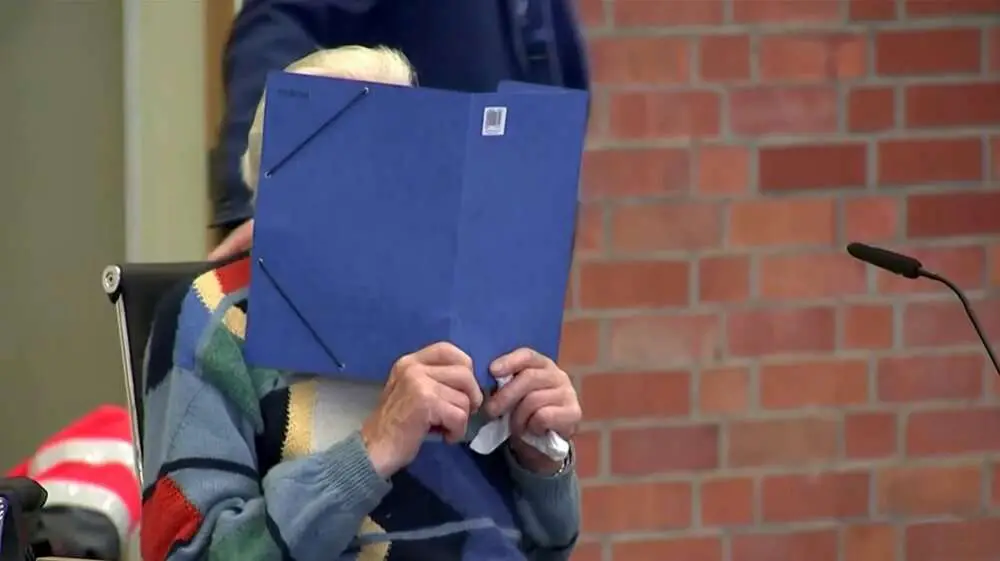
Irmgard Furchner, 97, has not uttered a single word during the 14-month trial in Itzehoe, Germany, where she has been dubbed the ‘secretary of evil’.
Furchner is set to walk free from the trial after the public prosecutor requested that she be sentenced to just two years probation if found guilty.
Witnesses and prosecutors have argued that Furchner’s role as commandant Paul Werner Hoppe’s PA at the Stutthoff camp in Poland made her complicit in the murder of its inmates.
With the verdict set to be announced soon, the victims’ lawyers have now urged Furchner to tell the court about the horrors she saw in the death camp and her role in its running.
Lawyer Sascha Bloemer told her: “Use this historic and last chance!”
Another lawyer – Ernst Freiherr von Muenchhausen – demanded: “Be a human being! Look back at your actions. Was everything really above board?”
He added: “We all have the right to get answers to our questions from you.”
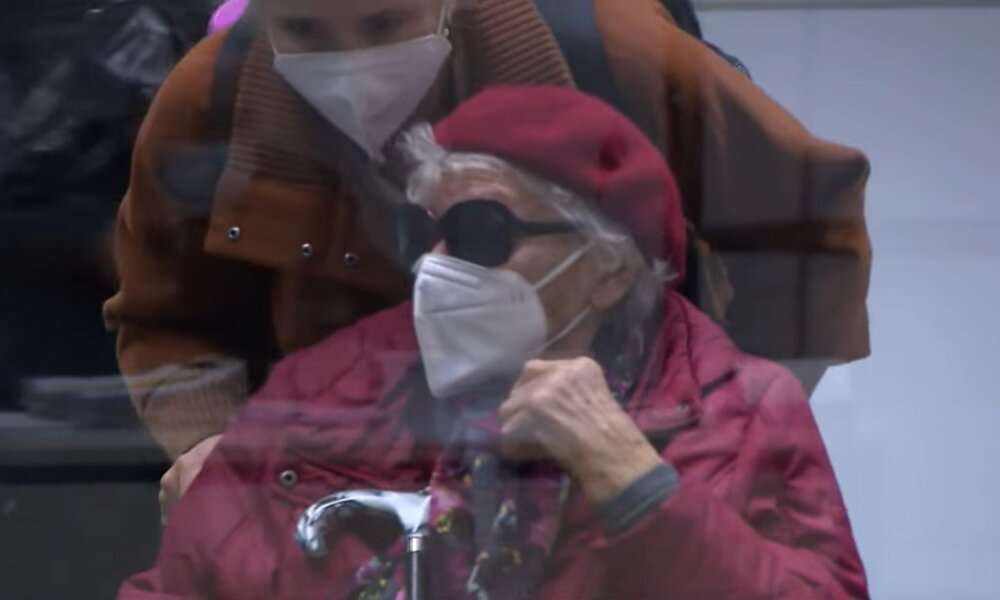
Deputy prosecutor Markus Horstmann told her: “I would have liked to have learned more from you throughout this process.”
Lawyer Christine Siegrot criticised what she saw as failures in the German judiciary over the fact that the “accused was not already in court in the 1950s”.
Prosecutor Maxi Wantzen previously said at the Itzehoe District Court in Germany on Tuesday, 22nd November, that she was convinced that the defendant was guilty of being complicit in the murders.
In a case that may be the last of its kind, Wantzen said: “This procedure is of outstanding historical importance.”
The prosecution alleges that her paperwork ensured that the death camp could continue to operate.
They argue that she was an important support for the camp commandant and his adjutants.
Furchner – as the commandant’s only secretary – would have known about the inhuman conditions in the camp, argued the prosecution.
From her office on the first floor of the headquarters building, she was able to see large parts of the complex, including a place where new prisoners arrived and were selected.
The court was made aware of the circumstances during an on-site visit to the concentration camp, which is now a memorial.
Furchner also allegedly saw and smelled the almost constant smoke from the burning of the corpses in the crematorium and on a pyre, prosecutor Wantzen said.
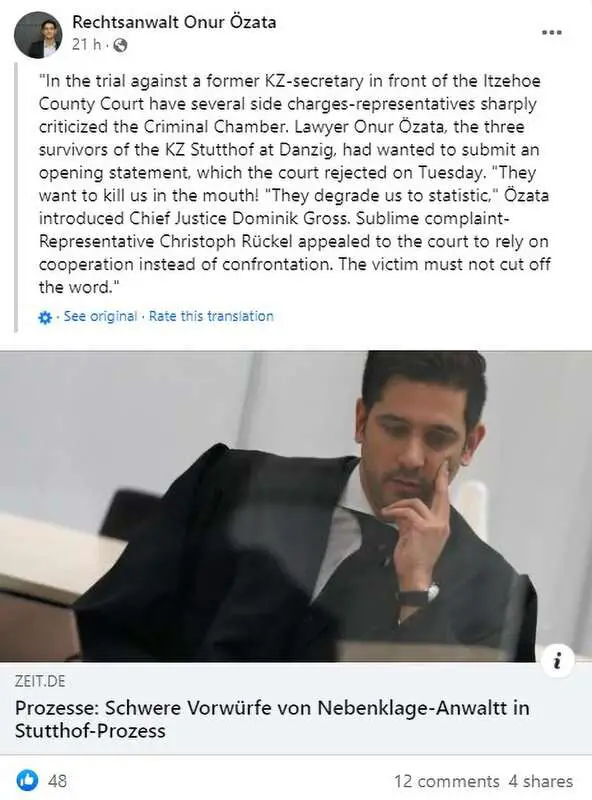
She considers it “completely unrealistic” that she could have missed it.
The prosecution alleges that at least 300 prisoners in the camp were shot while almost 1,100 were murdered with gas and more than 9,000 died from hostile conditions such as malnutrition.
Starving prisoners at the Nazi death camp ate the livers of dead inmates to stay alive, according to the shocking testimony of a survivor of the Holocaust.
Prisoners turned to cannibalism on a daily basis, often butchering corpses for their livers, the German court heard.
One survivor – Risa Silbert, 93 – told the trial on 30th August that cannibalism was commonplace among starving prisoners.
Speaking via video link from Australia, she told the Itzehoe district court in Schleswig-Holstein state: “Stutthof was hell.
“We had cannibalism in the camp. People were hungry and they cut up the corpses and they wanted to take out the liver.”
Silbert – born to a Jewish family in Klaipeda, a port city in Lithuania, in 1929 – added: “It was every day.”
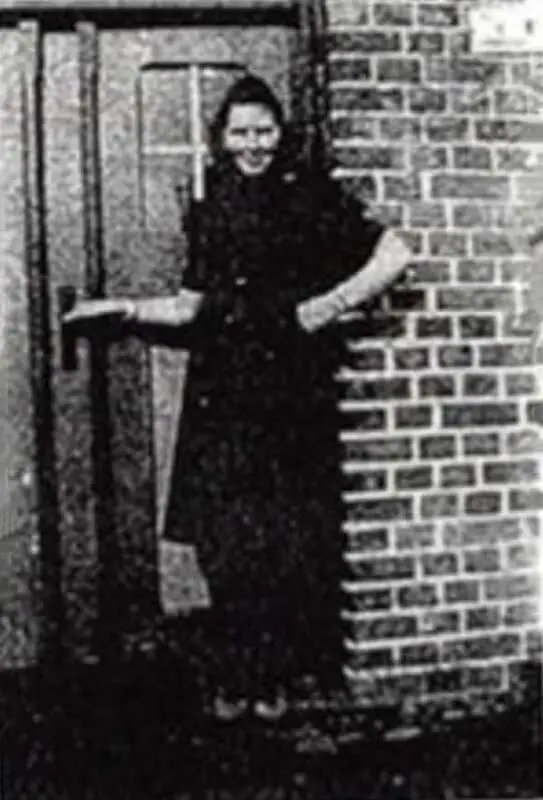
Accused Furchner is said to have aided in the systematic murder of more than 11,000 prisoners at the camp, where she worked from June 1943 to April 1945.
Furchner claims in her defence that she had no knowledge of the mass killings despite, in her job as secretary to the camp commander, reporting directly to the SS.
Furchner was expected to appear at the Itzehoe Regional Court in September last year, but the trial was suspended after she went on the run.
In an earlier letter, she had claimed she was not fit to stand trial.
She said: “Due to my age and physical limitations, I will not attend the court dates and ask the defence attorney to represent me.
“I would like to spare myself these embarrassments and not make myself the mockery of humanity.”
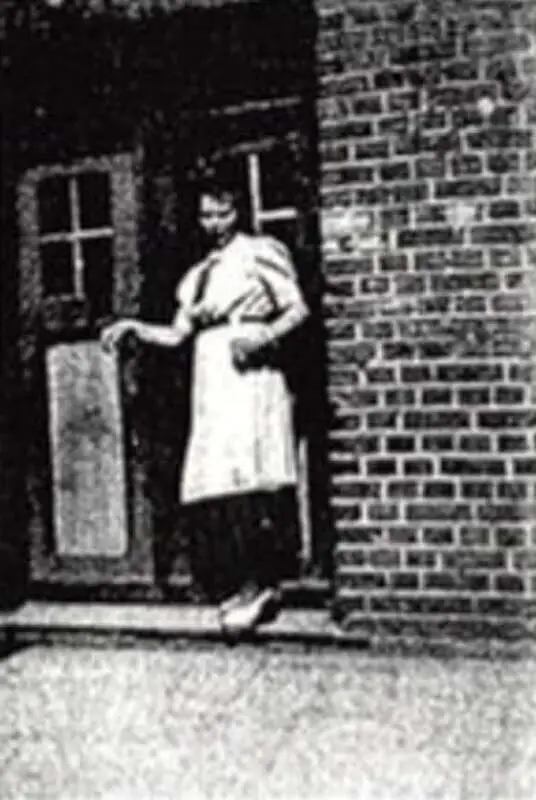
In her escape bid, Furchner left her retirement home in Quickborn, Hamburg, jumped in a taxi and disappeared.
Police arrested her just hours later and held her in custody for five days. It was not revealed where she had gone.
The Stutthof concentration camp was established by Nazi Germany near the village of the same name, now called Sztutowo and located in Poland’s Pomeranian Voivodeship, on 2nd September 1939.
It soon developed into a huge complex of 40 sub-camps across several locations.
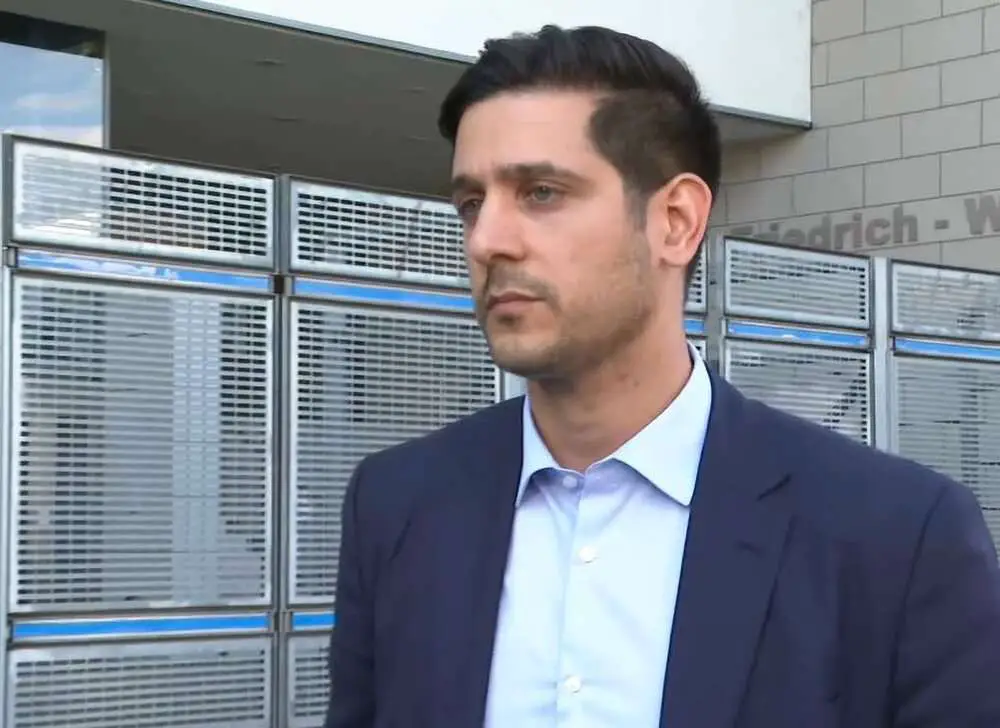
Up to 110,000 people were deported there until its liberation by the Allies in May 1945.



